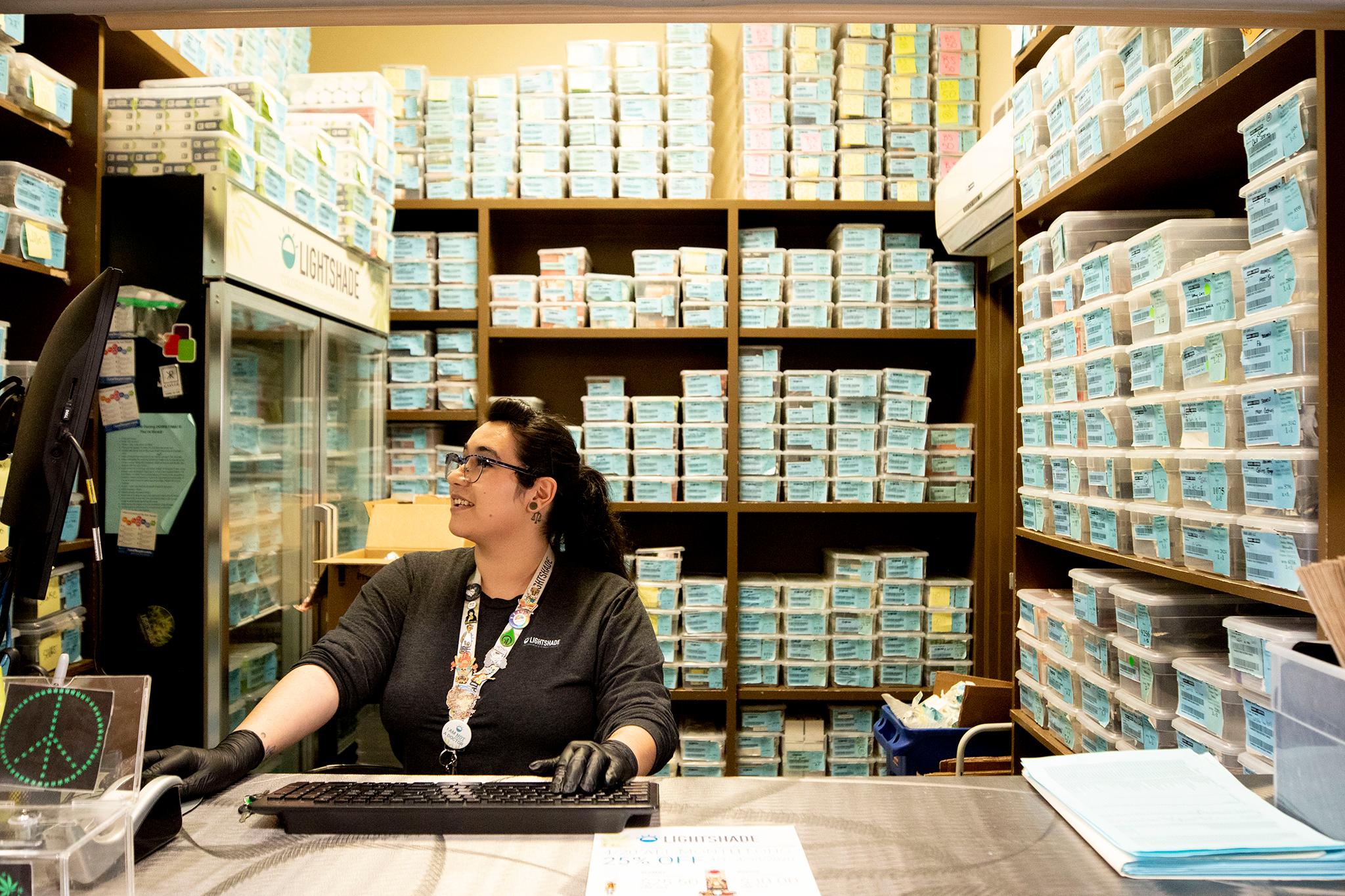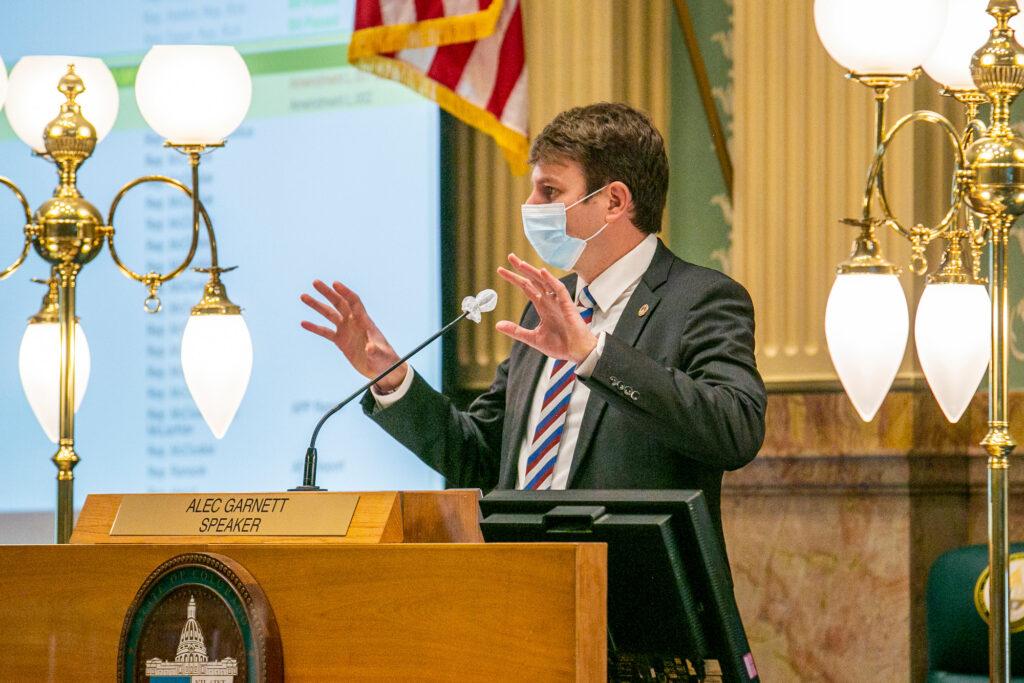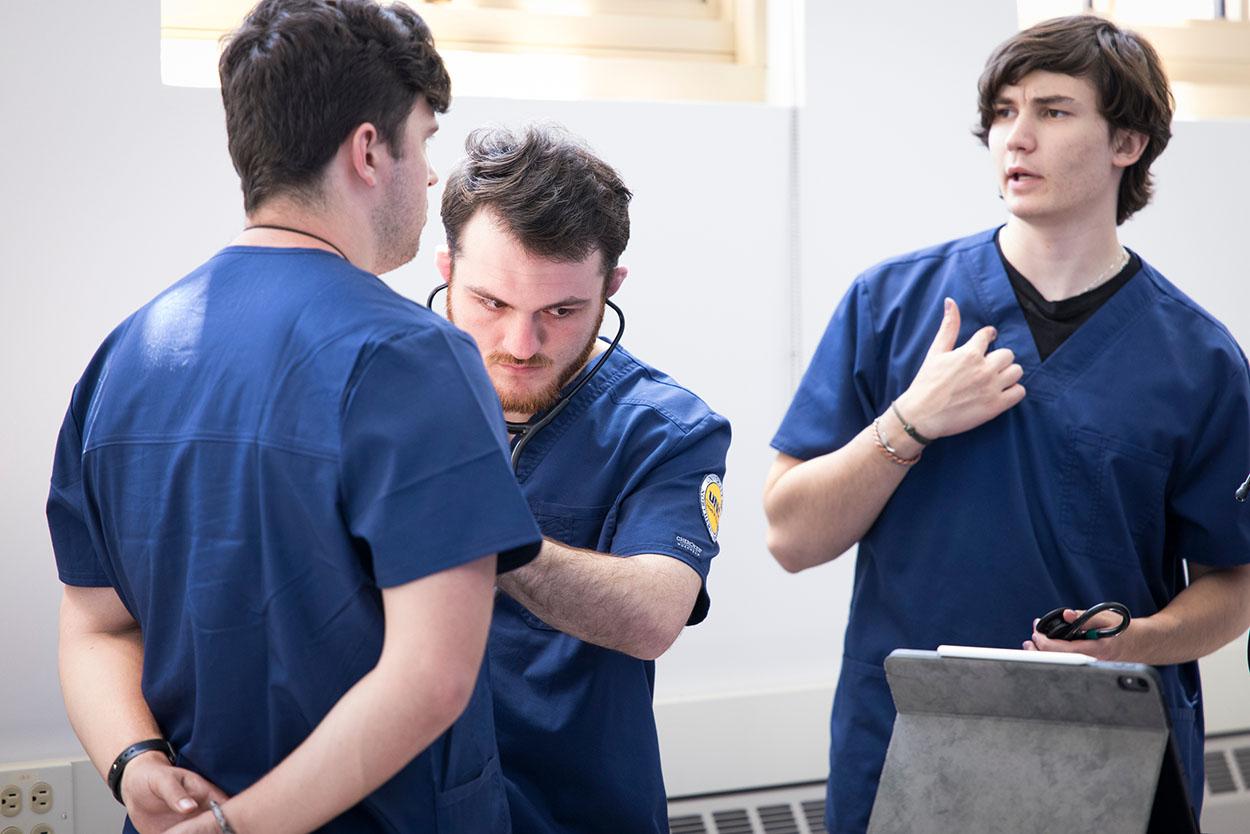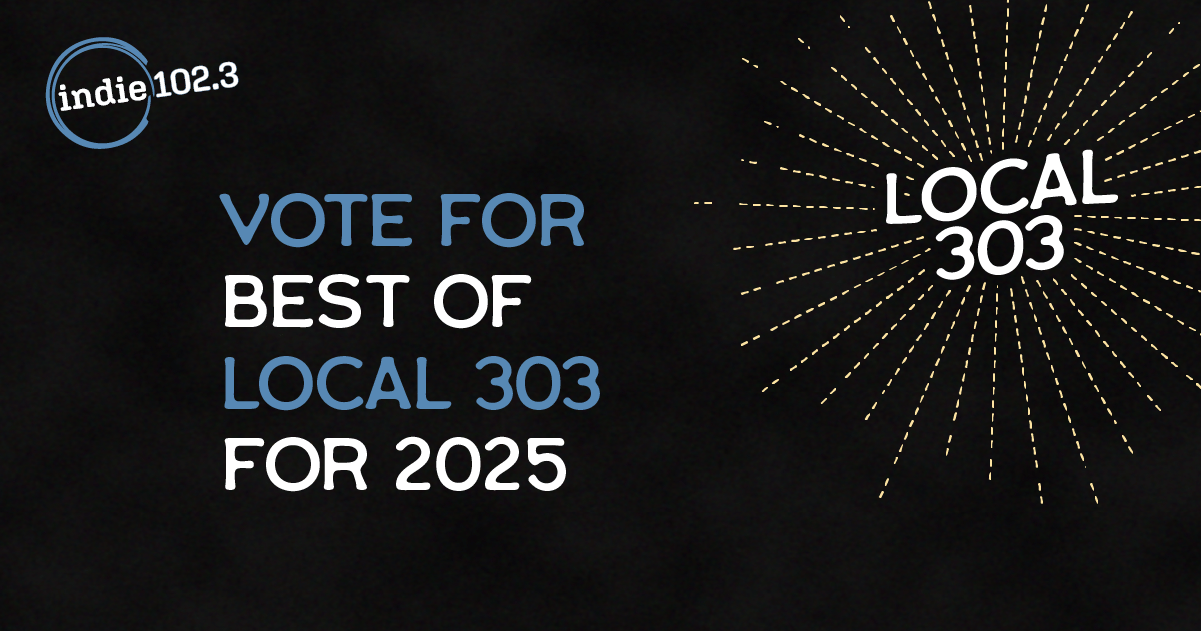
An effort at the Colorado statehouse to curb young people’s access to highly potent marijuana is expected to get a final vote later this week. The measure has overwhelming support from lawmakers in both parties, but took months of negotiations between the marijuana industry and advocates for stricter marijuana laws.
The bill is not as sweeping as some advocates for tougher laws around marijuana concentrates would have liked. While the measure would create more stringent laws around teenage medical marijuana use, it does not set potency caps on the strength of marijuana concentrates or make any changes to the recreational use of marijuana.
What to know if you’re an adult medical marijuana user:
House bill 1317 would limit how much medical marijuana adult users can purchase per day to no more than 8 grams. Currently the limit is 40 grams.
A statewide seed-to-sale tracking system for medical marijuana would also monitor patient data to ensure people don’t purchase more than the daily legal limit. The tracking system which has patient information, would issue an error message if the daily limit was exceeded.
The bill has several exemptions to the daily purchase limit: a physician's authorization, a significant physical or geographic hardship, a homebound patient, or a medical user who had a card prior to age 18.
What to know if you’re a medical marijuana user under age 18:
Medical marijuana users who are under age 18 won’t face any regulatory changes under house bill 1317.
Even when those users turn 18, they’ll be exempt from the bill’s new provisions for 18-20 year olds.
What to know if you’re a medical marijuana card holder aged 18-20:
The measure makes it tougher for 18-20 year olds to qualify for a medical marijuana card.
- 18-20 year olds must visit a physician in person and get written consent from two doctors from two different practices.
- 18-20 year old medical marijuana patients would need their physicians to evaluate the continued need for a medical card every 6 months instead of annually.
Limits on Purchases for Medical Users
- 18-20 year olds users could purchase no more than 2 grams per day.
Other Key Parts of the Bill
- The bill asks the Colorado School of Public Health to report back to the legislature on research gaps on the health impacts of highly potent marijuana by next summer. The measure would fund two additional years of research for the school to conduct its own scientific studies on high potency products.
- The bill would also require coroners to start collecting toxicity reports on all victims of unnatural death who are 24 years old and under, excluding homicides, to assess the presence of THC and other drugs or alcohol in their systems.
- The bill requires an annual report on data from hospitals and emergency rooms on discharged patients with symptoms or diagnosis of marijuana use.
- The Colorado Department of Revenue would also set up new rules for how concentrates should be sold and packaged, including a recommended serving size.
- Physicians who prescribe medical marijuana would be required to do periodic educational training.
- Physicians must assess someone’s mental health history before prescribing medical marijuana.

Democratic Speaker of the House Alec Garnett is the main sponsor of the legislation. He said his biggest hope is that it will drastically reduce looping, the process of people buying high amounts of marijuana only to resell it. He said it’s especially prevalent in that 18-20 year old set.
“So people are going from dispensary to dispensary buying 400 doses in each dispensary and nothing is stopping them,” Garnett said. “And if you talk to a high-schooler today, there is no flower on the high school campus. You do not find flower anymore. It is only high potency concentrate, and that is because an 18 year old legally can go buy 400 doses from every dispensary in the state of Colorado, if their car drives fast enough to get there before they close for business.”
Researchers say 80 percent of legal pot sales go to the 20 percent of customers who are regular users. And they’re not just buying joints, or marijuana flower that’s become steadily more potent over the years.
Concentrates, like hash oils and waxes, can be upwards of 80 percent THC, the main psychoactive compound in marijuana. Not a lot is known about the health risk of concentrates, but there are some concerning anecdotes.
Democratic Rep. Alex Valdez was among a handful of lawmakers in the House who voted against the bill. He said he doesn’t like how the measure tries to link marijuana use to mental health impacts.
“When I think about how cannabis is used by those suffering from mental illness, I think it's a question of do folks that have mental illness seek self-medication through drugs and alcohol, or, what I think the bill poses, the question, does cannabis cause mental illness? And I think the answer is assuredly no.”









